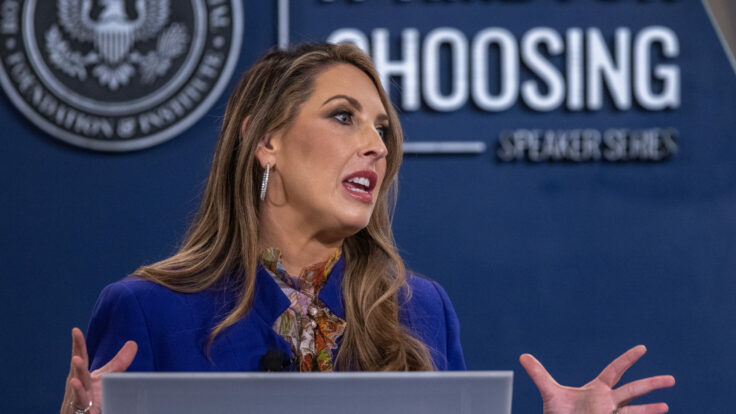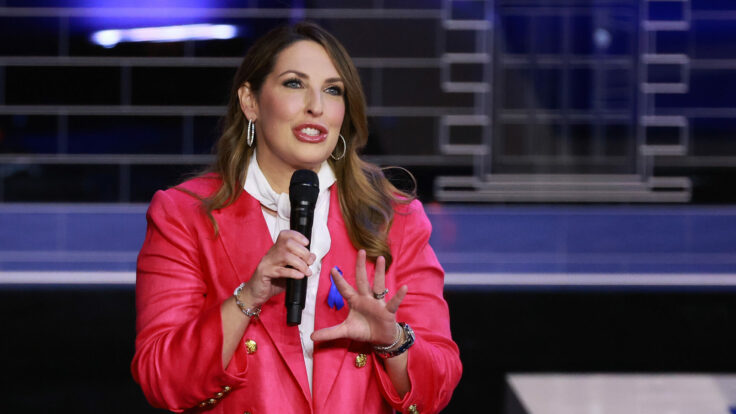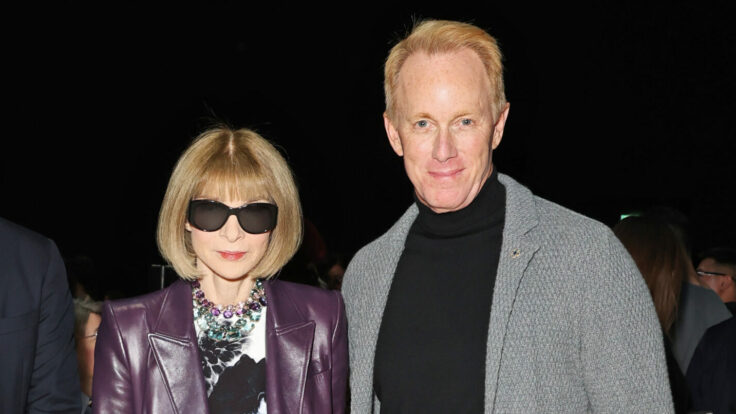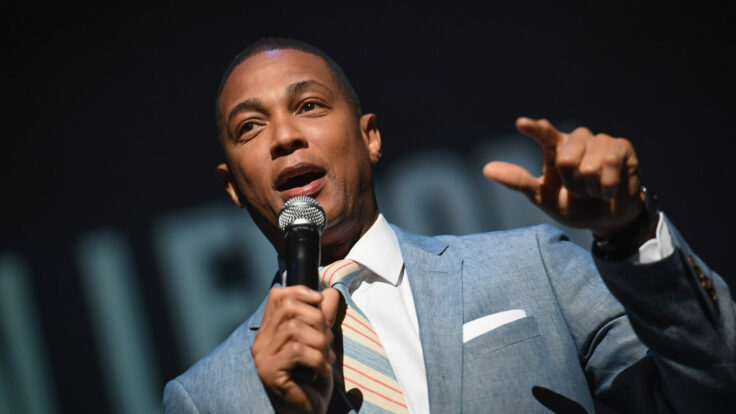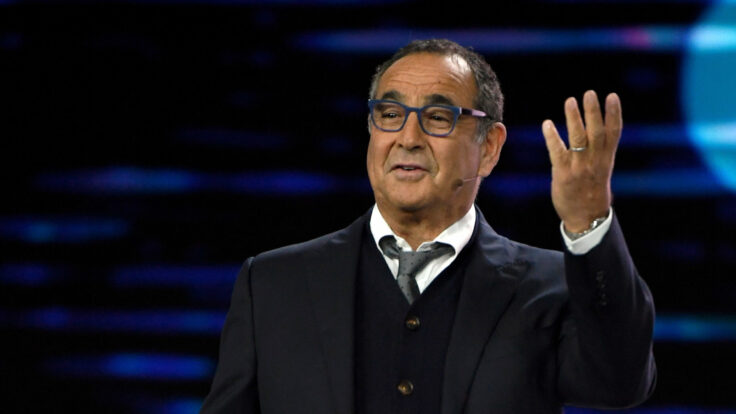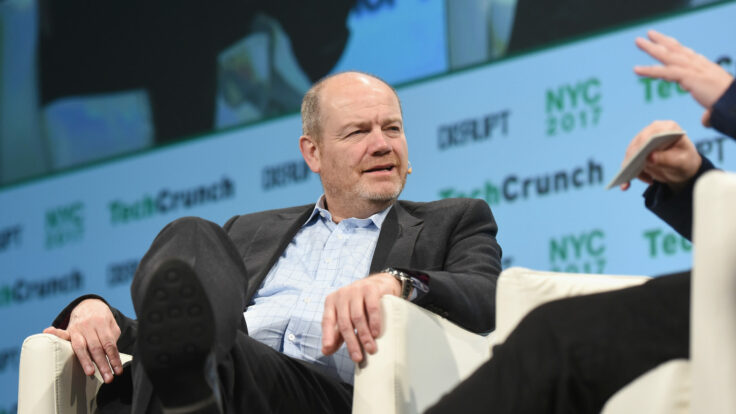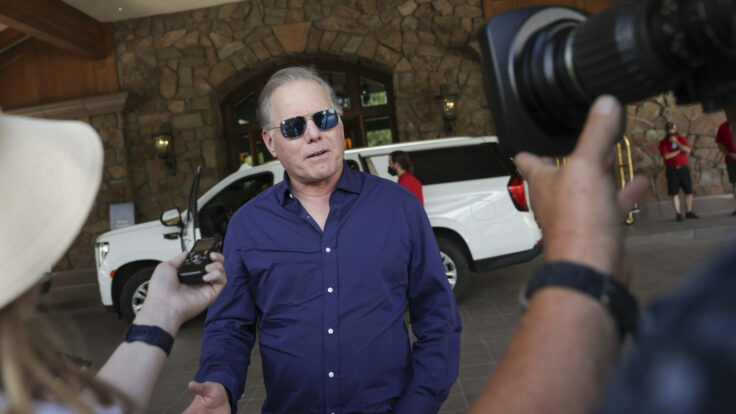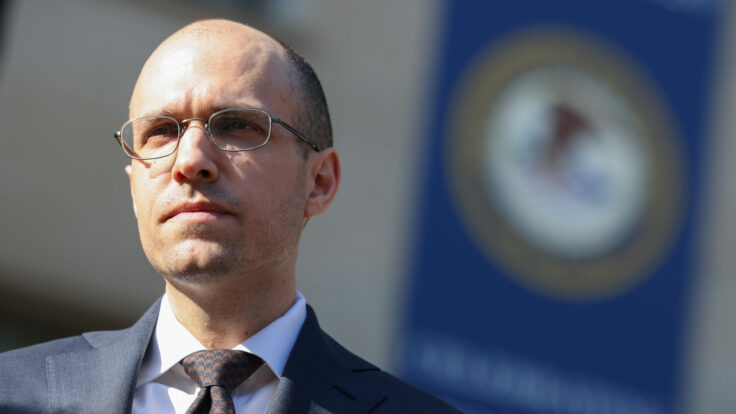Earlier this year, NBC News president Noah Oppenheim and his friend Eric Newman, a Hollywood writer and producer, sold a political thriller mini-series to Netflix. This wasn’t Oppenheim’s first foray in Hollywood. After an early career as a show producer across the various NBC news channels, Oppenheim had left 30 Rock in 2008 to pursue his ambitions as a screenwriter—co-writing a couple notable science fiction films before writing Jackie, the Camelot biopic that won him Best Screenplay at Venice.
But ever since 2015, when Oppenheim returned to NBC News, and certainly after his promotion to president two years later, his screenwriting career was placed on indefinite hiatus. The obligations of running a national news network were too demanding—especially given the various tightrope-walking headaches, from Brian Williams’ relocation to the Matt Lauer revelations—for even an ambitious and still relatively young overachiever who graduated magna cum laude from Harvard. (Funny how this detail can keep popping up in one’s autobiography…)
The recent revelations about the Netflix project have reignited some long-standing suspicions inside NBC that Oppenheim might be loose in the saddle. If you’ve so much as walked by The Rink at Rockefeller in recent months, you’ve probably heard someone speculate that he was on the way out. Sources higher up in the building say that’s not true now, but they presume that it likely will be in a matter of months.
There’s not necessarily any drama here. Oppenheim’s tenure has been marked by some notable accomplishments and only minorly sullied by a public battle with Ronan Farrow over l’affaire Weinstein. Some think, without any proof, that Oppenheim was protecting Weinstein in case he returned to Hollywood. Most, however, realize that it wasn’t clear that Farrow, then an unproven TV journalist who was frustrated over his canceled MSNBC show, had the goods until he took his work to The New Yorker. Anyway, few TV executives would have taken the chance, if we’re being honest.
But the salient issue is that, after being passed over for NBC News Group chairman in 2020, Oppenheim is stuck under the man who did get the job: Cesar Conde, a politically adroit Walmart and Pepsi board director, and former White House fellow, who has been tasked with managing the decline of linear news assets and tightening spending. Oppenheim is, obviously, a content guy; Conde is a business guy. It’s hard to imagine Oppenheim sticking around too much longer.
Who can blame him? On the positive side, leadership in network news has never been more diverse—an important and long overdue change in an industry that often lags the culture. But the television news business is also a pretty depressing place these days, short on vision and viewership. Not long ago, these networks and franchises were run by highly creative and competitive producers of the Roone Arledge school, who skillfully convinced their corporate overlords to tolerate big production budgets and sky-high talent salaries. They knew how to turn anchors into stars and news events into serialized dramas. They rolled up their sleeves and fought side-by-side with their journalists in the trenches, working overtime for every exclusive, every booking, every viewer. Now, the job seems to be all about managing the industry’s inexorable decline. Hence the recent pivot to hand over the reins to professional managers in the Conde mold.
Indeed, most people running the networks seem to be deft careerists who spend more time at conferences and award ceremonies, managing their C.V.s and Instagram accounts, than they do in their own control rooms. They are MBA types, or overseen by MBA types, who have little interest in the product beyond making sure it doesn’t cost too much. And that may be the necessity given that the industry can’t continue on the path that got it here.
CNN C.E.O. Chris Licht seems to be an interesting hybrid: a programmer by trade bequeathed a heavyweight business title, apparently with the biggest budgeting shots being called from above. “It’s not about innovation or creativity, it’s about managing costs and spreadsheets to the corporate overlords,” one broadcast executive told me. “If you got into this business from the creative standpoint, or the journalistic standpoint, there are more interesting places to go.”
“The Opening of an Envelope”
According to Adam Smith, when the jobs aren’t as fun, and the money is smaller, the talent pool gets sparse. And if you look out across the TV news industry today, a generation of creative impresarios seem to have been replaced by careerists who are in over their head, and can’t fill out the shoes. “The folks who loved TV news are all gone,” a notable veteran of the television news industry told me this week. “They lived for it. They watched it all day and then turned on the TV when they got home at night. Sadly they’ve been replaced by climbers, poseurs, and people who call TV ‘the linear space’ but are eager to appear on panels and attend the opening of an envelope if it enhances their personal brand.”
Earlier this week, I reported on the myriad internal frustrations bearing down on ABC News President Kim Godwin, a longtime CBS News deputy who has put a strong emphasis on improving culture and who, these sources said, seems overly preoccupied with burnishing her own brand of aspirational work-life balance: vacationing, being occasionally unreachable, holding senior staff meetings from the remove of her office next door, all while admittedly keeping ABC News atop the heap. But there’s an alpha streak in there. In a meeting with executive producers on Thursday, Godwin responded to my story by suggesting that her detractors would be homeless if they wanted to burn the place down. The remark seemed to misinterpret the target of her critics’ frustrations.
Godwin’s alma mater, CBS News, is enduring its own drama. Last April, CBS Entertainment chief appointed Neeraj Khemlani, a Hearst executive, and Wendy McMahon, of ABC Stations, as co-presidents of the network, with Khemlani effectively overseeing national news in New York while McMahon overhauled the local operation from Los Angeles. Khemlani was an unconventional choice for television news leadership. Two decades earlier, he had been a 60 Minutes producer. In 2006, he went on to work for Yahoo! News, back when it had a real audience, and then parlayed that into a job where he taught the much-beloved Hearst executive chairman Frank Bennack about the Internet and got promoted up the chain, ultimately to E.V.P. of the newspaper division.
At CBS, Khemlani inherited a news division with storied traditions, good and bad, and staff who were reluctant to change. He immediately faced suspicion from veteran employees who questioned his grasp of the TV business. He also butted heads with talent, most notably Norah O’Donnell, for repeatedly trying to recruit Brian Williams as her replacement—despite Williams having zero interest in the job.
But, most importantly, Khemlani faced blowback from several employees for what sources at the network described as rude and dismissive behavior, most notably to female staffers, which became ongoing fodder for Page Six. Even as Khemlani made notable strides in the newsroom, investing in high-impact, award-winning reporting, revamping the streaming network and luring a few notable hires, such as Robert Costa, the frustrations with his management style have persisted.
Earlier this year, Khemlani was asked to submit to a 360 review, an exercise wherein employees, colleagues, and superiors provide anonymous assessments of the individual’s performance. The review noted several complaints about Khemlani’s behavior toward staff, and he was advised to seek counseling, CBS News sources familiar with the findings said. In recent months, Khemlani’s boss, CBS C.E.O. George Cheeks, has privately expressed concern with the complaints about Khemlani’s behavior, according to two sources who spoke directly with Cheeks on separate occasions. (Representatives for CBS and CBS News declined to comment on personnel matters.)
Meanwhile, at MSNBC, President Rashida Jones has yet to make any signature programming moves after two years running the liberal news network, other than installing Alex Wagner in Maddow’s former time slot and Stephanie Ruhle in Williams’. Both Wagner and Ruhle are skilled on-air personalities with demonstrable talents; nevertheless, the two substitutions convey the relatively diminished stature of television’s current talent pool. Of course, Jones continues to exercise relatively limited power over the network, given Conde’s management of the P&L and the outsized talent of the network’s most notable stars, like Maddow and Joe Scarborough. (It is no small rub that Maddow continues to work closely with Phil Griffin, Jones’s predecessor.)
More recently, Jones has had a difficult time managing smaller talents. Her decision to fire the outspoken weekend anchor Tiffany Cross has blown up into a mini-scandal at 30 Rock, particularly after a Variety report on Friday noted that she has been privately lobbying elite media figures, including members of ABC’s The View, to stand with her in what has become a very divisive debate on the left. Meanwhile, Cross’s lawyer, Bryan Freedman, the infamous scorched-earth entertainment litigator, has started dropping hints that he might pursue a defamation case in light of Jones’s lobbying campaign.
At CNN, Licht has now had more than seven months to establish himself as an effective leader of the 4,000-person global news organization, and yet continues to be viewed warily by many, most notably because of the $100 million cost-cutting effort he foolishly indicated would not happen. Interestingly, Licht is a showman and producer by trade. And yet he was tasked with, and tried to fashion himself as, something he wasn’t: a business executive. So despite his production bona fides, Licht has been tasked with a job better fit for a McKinsey consultant: cutting costs, cutting jobs and repositioning the network as a palatable, milquetoast version of what CNN was more than a decade ago. Unfortunately, most of the people who knew the unique machinations of CNN’s business, and might have shown him the ropes, left early in his tenure, either by volition or termination.
As for programming, Licht has yet to show any demonstrable accomplishments: Seven months into his tenure, ratings remain near all-time lows, his primetime hours are devoid of stars after a failed Jake Tapper experiment, and his highly anticipated new morning show, CNN This Morning, has failed to move the ratings needle. This Morning also seems to be enduring some growing pains. On Friday, Don Lemon, who was in Washington the previous evening for the White House Christmas party, skipped his hosting duties with little advance notice. Some CNN sources say he was exhausted and simply needed a day off; others point to a very tense segment with his co-host Kaitlan Collins that took place the day before, in which she repeatedly tried to speak over him as he was reading the news, to his apparent annoyance.
It’d be hard to blame Lemon for being annoyed. He’s still a young man, to be sure, and his ascent in the business occurred when anchoring an hour or two on CNN was the culmination of an extraordinary career. These days, of course, he’s the most senior of equals on a revamped morning show on a oft-in-crisis brand that vectors up to an underperforming behemoth that didn’t exist a year ago. It’s hardly a surprise that so many industry insiders call and text me about the great old days: the ratings, The Four Seasons, the massive interviews, etcetera. The past looks even brighter as the future looks ever more dim.








